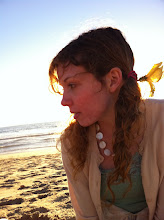There is a place just beyond our knowing whose name has fallen from our tongues, but is sometimes spoken of (in low voices and desperate tones) as "The Island of Summer Snow." On that island everything is lush and green, and so beautiful it was impossible to believe. Flowers like fireworks fallen from the sky grow in hot clusters at the bases of dancing trees. Birds with feathers of filigreed frost speak sonnets back and forth through the leaves. Yet this is no rainforest. The Island of Summer Snow is something much more extraordinary: a snowforest. Every day of the year, snow falls and falls and falls forever. Like a falling dream. Like the kind where the ground never comes but sooner or later you start to want the crash, bad.
It’s bona fide snow, too; no trick of the light, no warm soft rain. So cold it makes the dreams turn to ice in your head. Your thoughts are stiff glass dolls with their arms raised and their faces caught in awkward contortions, as if Midas fucked the Ice Queen and their powers got all mixed up somehow. And let’s not forget: so cold it makes the desire curdle in your stomach.
Ordinarily when there is snow like this, summer becomes a mythical realm, the sort that parents tell their children of in bedtime stories. When the cold becomes oppressive, you clench your eyes so tightly shut they sting, and conjure up a parade of mermaids. Water slicing over smooth bare backs. Salt everywhere, in the air, in the sea, crystallizing like rock candy on our skin. You say: summer, my love, is the grass unkempt and the salacious winking of the fireflies. It's the sky laid bare and filled up with stars, the sky showing off its pierced naval. It's the fervid clench of your hand in mine and the way the heat makes the world waver, so that everything seems a mirage.
But for now summer is Atlantis. A distant dream. A sunken thing.
That is only ‘ordinarily’, however, and if there is one thing that the Island of Summer Snow is not, it’s ordinary. On the island of summer snow, a perfect equilibrium is maintained, so that the snow may fall and the grass may grow with equal ease. The air is warm as your lover’s breath in your ear. The cold of the snow doesn’t hurt at all; in fact, it feels like a blessing.
Because of this curious phenomena, there is no one in the world who understands the true duality of human nature better than those who have lived on the Island of Summer Snow. These voyeurs know that flames can be blue as well and red, and that anger and love have the same frequency and transcribed into song. And on this island, people loved like Aphrodite and fought like Aries.
And when they whispered, the whole world leaned in close to hear whatever secrets they might say. And what secrets there were held the fate of the human race.
And when they shouted, glass shattered.
When they died, they died they liked the phoenix herself. They went up in flames and took the whole world down with them. But that part doesn’t matter, really. What matters is the before. What matters is that they made love under the dancing trees and the heat from their lithe, writhing bodies created a radius of melted snow, and beneath them the grass was green as the poisonous tree frogs who watched the whole thing happen.
And when they loved-- on second thought-- they put Aphrodite to shame.
And when they screamed-- I’ll say it again-- glass shattered.
In the Land of the Summer Snow even the pettiest of incidences was performed with the utmost passion. Everything had all the flare and exaggeration of theater. We lived a life there that could be described only in superlatives.
And we went down in history.
And though we died, and though the language that our history was written in died too, the story remained, both as real and as unbelievable as summer, as winter
as The Land of Summer Snow, as You, as I. Somewhere our ghosts laughed and laughed, saying, “We never wanted this immortality.”
Zora Neale Hurston, who had herself spent some time on the Island of Summer Snow, turned to us with a wry wink in her eyes and said, “I wanted a busy mind, a just life, and a timely death-- but I didn’t exactly get that either.”
So we stayed a time, playing at tortured artist and snow-struck lover and court jester.
as I.


